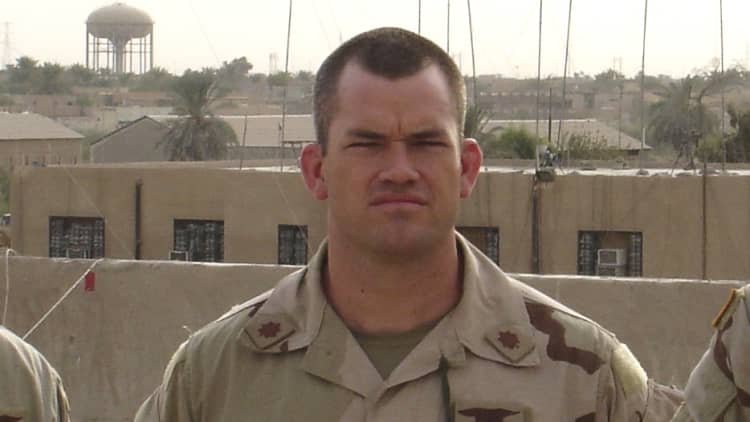Raising kids isn't easy, even for former Navy SEAL Jocko Willink. But the former platoon commander has learned to use the knowledge and skills from his 20-year military career to raise his four children.
Uniting people on the battlefield, the office or at home borrows from the same principles, says Willink, who founded management consulting firm Echelon Front after returning to civilian life. You might be a manager or a parent, but "leadership is leadership," he says.
According to Willink, these three tough love lessons can help any leader whether they are at home or in the workplace.
Tough love lesson #1: Don't bark out commands
Parents need to explain why they are doing something, Willink tells CNBC Make It. When moms or dads bark orders, kids can grow to resent their parents. More importantly, the kids won't understand why their parents' request was beneficial.
He suggests telling kids why a task is important. If kids understand how it's going to help them or how it's going to help the family, "then they will be more apt to do [that chore] with a higher level of commitment."
This is crucial not only in parenting, but also when leading others at work. If teams "understand why they're doing [something] and how it ties into the strategic mission that you're trying to accomplish, they'll work harder at that task."
Tough love lesson #2: Let them struggle
"If you're helping your kids," says Willink, "you're hurting your kids."
"That's not to say that you should let your kids fall, fail and be in danger," says Willink. But parents can step in less often when their children struggle with chores and tasks.
Instead, parents should reframe these moments in their mind, thinking of them as important chances for their children to hone life skills. "If you jump in and you do it for them," says Willink, "what you're actually doing is literally taking away the ability for them to develop."
Willink says this idea holds true for leaders in any situation. If you constantly do everything for your team members they will never learn to do anything for themselves.
"As a leader in the SEAL teams, am I going to let a junior leader go out on a mission that they've planned poorly and let them fail and let them get someone killed? No," says Willink. "But I will allow a SEAL to run a training mission where maybe they will fail, but no one will get hurt and they can learn."
"In order to grow," he adds, "you have to have some discomfort and you have to have some small failures."
Tough love lesson #3: Enforce accountability
Willink isn't a strict parent, he says. For instance, his children don't have to go to bed at 8:30 or 9 at night. They can stay up until 10:00 if they want, he explains. He lets his children make decisions for themselves and holds them accountable to their choices.
"If my [kids decide] they don't want to wake up early in the morning and now they're late for school, guess what? They're going to suffer the consequences," says Willink. "I'm not going to baby my kids because when my kids get out of my house, I won't be there to baby them. They'll need to know how to fend for themselves."
When it comes to the workplace, Willink notes that too many leaders make the mistake of holding their employees' hands. As a result, "there's almost no room for the leader to do anything else besides monitor the progress of that specific subordinate in that specific task."
"Balance accountability with educating the team and empowering its members to maintain standards even without direct oversight from the top," writes Willink his new book "The Dichotomy of Leadership."
Says Willink, "This is a hallmark of the highest performing teams that dominate."
Like this story? Subscribe to CNBC Make It on YouTube!
Don't miss:



